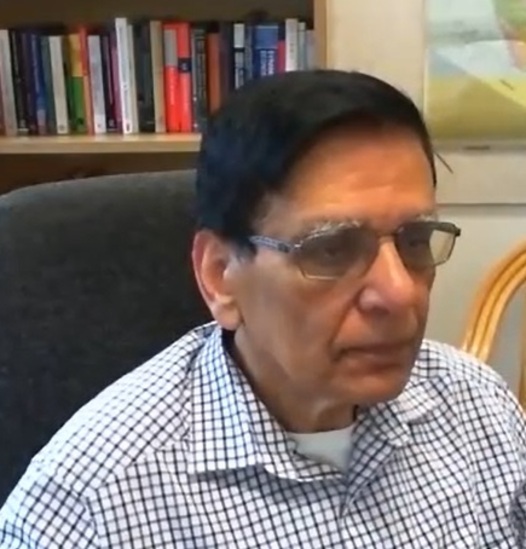By (Late) Prof. Raghbendra Jha, Professor Emeritus of Economics, Australian National University
The world economy today is in a precarious situation. As of 25 October 2023 it was reported that 771, 549, 718 confirmed cases of COVID-19 had occurred, resulting in nearly 7 million deaths from the virus.[1] The toll of the virus on the global economy has also been very severe.[2] Nevertheless, towards the end of the worst phase of the pandemic the world economy had started to recover. As an example, it has been reported that by 21 October 2023, a total of 13,533,464.652 vaccines had been administered. What the world needs most is a period of relative calm where the administration of the vaccines could be speeded up, supply chains repaired and world, trade, investment and economic growth could accelerate. Starting from the state of affairs at the trough of the pandemic, improved health outcomes, higher economic growth and world peace could follow. This began well but has not been able to sustain itself.
According to the UN, global public debt reached and astonishing US$92 trillion in 2022.[1] Debt levels in major countries of the world including the US, Japan, China and EU are very high so that there now exists an international debt crisis,[2] The Delhi Declaration at the recently concluded G20 summit emphasized the importance of addressing debt vulnerabilities in low and middle-income countries in an effective, comprehensive, and systematic manner.

environmental challenges and reaffirmed steadfast commitments to an effective implementation of the temperature goal made in the Paris Agreement to limit the temperature to 1.5°C above pre-industrial levels. Only time will tell whether these goals will be reached.
To compound maters further there are two very disastrous wars being fought out (Russia Ukraine war) and the (Israel Hamas war) in the Middle-East. A number of other countries are indirectly involved in these wars and both these wars have the potential of spreading well beyond their current confines. In addition, a number of flash points persist in the global arena and the risk of widespread, even global, conflict is real. Apart from the risk of further escalation the wars could raise the prices of critical commodities and inputs (particularly petroleum products). This would raise inflation and hurt already suffering supply chains. Higher inflation will lead to higher interest rates and even higher debt payment obligations.
An additional issue is taking steps towards the development of a mechanism for a voice for the Global South in world Affairs for tackling the economic gap between developed and developing countries, achieving sustainable development, and providing an avenue for developing and emerging market economies to play a significant role in world affairs for the betterment of all.. Not much has changed since the Second World War in international economic and political relations even though developing and emerging market countries are now contributing very significantly to the world economy. This is not just inequitable but also inefficient.
From the recently concluded G20 the message became quite clear that in the emerging global order the world will need to work together as no one nation or small group of nations alone can successfully address the problems that are global. Some movement toward this was achieved at the recently concluded G20 summit when the African Union was made a member of the G20. This move was not just equitable but also efficient because it is becoming clear that in the next 30-40 years or so Africa is likely to become one of fastest, if not the fastest, growing regions in the world. Africa will also soon be home to more than 1 billion people.
After the end of the COVID period, the world economy needed a period of considerable calm, mutual cooperation and peace to make up ground for the lost years during the pandemic. However, on many fronts the problems are only being exacerbated. Some corrective steps are being taken in some areas – e.g., development of non fossil fuel sources of energy but much remains to be done.
===========================================
Brief Profile-(Late) Prof. Raghbendra Jha
For more than four decades Prof. Jha had been an active researcher in economics. He have also contributed extensively to the policy debate through consultancies and other public engagements. He authored or edited more than 30 books/monographs with major publishers and authored more than 150 papers in leading scientific journals and other refereed outlets. He had been at the Australian National University since January 2001. Previously he had taught at Columbia University and Williams College in the US, University of Warwick in the UK, Queen's University in Canada, and Delhi School of Economics, IIM Bangalore and IGIDR Mumbai in India and supervised many PhD students. He had consulted extensively for international organizations such as the World Bank, the Asian Development Bank, UNESCAP, WIDER and UNRISD and was on the editorial board of major international journals.
[Back]